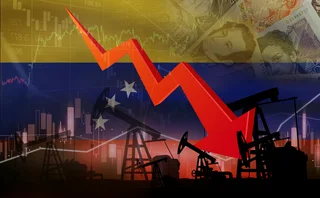Software House of the Year, Asia – SunGard Energy & Commodities
Software House of the Year, Asia – SunGard Energy & Commodities

India has continued to be a steady growth area. "We have a good stable base of customers in India and we've positioned ourselves as a market leader on the emerging physical power marketplace," says Roderick Austin, managing director Asia Pacific, SunGard Energy & Commodities business unit. "We were very encouraged to find that the operational characteristics of the Indian power market were easily handled and modelled [by our technology]," he says.
SunGard also secured new business in India for Aligne, its flagship commodity trading and risk platform released about 18 months ago. The biggest customer base for the platform is still in North America and Europe, but the company says it has been successfully introducing the platform in the Asia-Pacific region. Major Aligne clients in the region include a global trading firm with an office in Singapore and a large institutional investment company based in Australia that uses the platform to manage local generation and fuel supply needs.
"Aligne is the culmination of years of development and research, taking a lot of the best-of-breed functionality that we had acquired over the previous 10 years and consolidating it into single architecture on one platform that customers can deploy depending on their specific needs," Austin says.
"It's a very exciting time for us and we're hoping to capitalise on the substantial investment that we have made for the benefit of our customers in all of our regions, particularly for my region in the Asia-Pacific," he says.
The company is currently studying developments in China. "There are a number of questions about how well our products will play in the markets there," Austin says. There are questions that any foreign company has to answer before going into China, he says. "There is a lot of upfront investment in time and nurturing of relationships that has to happen."
But he is upbeat about the region's potential. "It's probably safe to say at this point that Asia for the most part has weathered the recent economic downturn better than other regions," he says. As a result, many companies in the Asia-Pacific area are expanding and he hopes SunGard will benefit from the growing need and demand for technology.
The one cloud on the horizon is regulatory uncertainty. He says it is a challenge keeping up with new regulation. Many firms in the Asia-Pacific region do business on exchanges in the US and they have to comply with the new trading rules. "Regulation [in the US] has an impact here today," he says.
Local regulation could also be a threat and lead to diverging regulatory environments within the region. The Asia-Pacific is a huge area with many cultures, languages and governments and it is important to keep up with policies that may affect business, he says. "In terms of local regulation and legislation and how this impacts business - that is still an emerging question and one that I don't think is going to become fully transparent for a little while yet."
SunGard has more than 4,000 employees in the Asia-Pacific region, including about 230 in the energy and commodities business unit. "Right now we have good coverage for our business, but there are a couple of key positions that we are looking to fill," he says. A decision to ramp up resources in China will depend on the outcome of the research currently being done.
Between 2008 to 2009 SunGard's business in the region increased by about 45%, and the firm continues to expect strong growth of around 30% this year. "In terms of growth, the Asia-Pacific is by far and away the largest growth market we have as a business today. We've set aggressive targets for North America and Europe, but they don't approach those sorts of figures."
Click here to view the article in PDF format
More on Risk management
Energy firms revisit CTRM systems as tech advances
Energy executives mull how to tap into the explosion of new technologies entering the risk space, but systems selection must consider future business needs, writes Yefreed Ditta at Value Creed
CRO interview: Brett Humphreys
Brett Humphreys is head of risk management at environmental markets specialist Karbone. He talks to Energy Risk about the challenges of modelling outcomes in unpredictable times and how he’s approaching the risks at the top of his risk register
How geopolitical risk turned into a systemic stress test
Conflict over resources is reshaping markets in a way that goes beyond occasional risk premia
Energy Risk Debates: the influence of risk culture
The panellists examine different risk cultures and discuss the risk manager’s role and influence in creating a risk culture
Energy Risk reaction: Venezuela and oil sanctions
Energy Risk talks to Rob McLeod at Hartree Partners about the energy risk implications of the US’s control of Venezuelan oil
CRO interview: Shawnie McBride
NRG’s chief risk officer Shawnie McBride discusses the challenges of increasingly interconnected risks, fostering a risk culture and her most useful working habits
Increasingly interconnected risks require unified risk management
Operational risk is on the rise according to a Moody's survey, making unified risk management vital, say Sapna Amlani and Stephen Golliker
Energy Risk Europe Leaders’ Network: geopolitical risk
Energy Risk’s European Leaders’ Network had its first meeting in November to discuss the risks posed to energy firms by recent geopolitical developments







